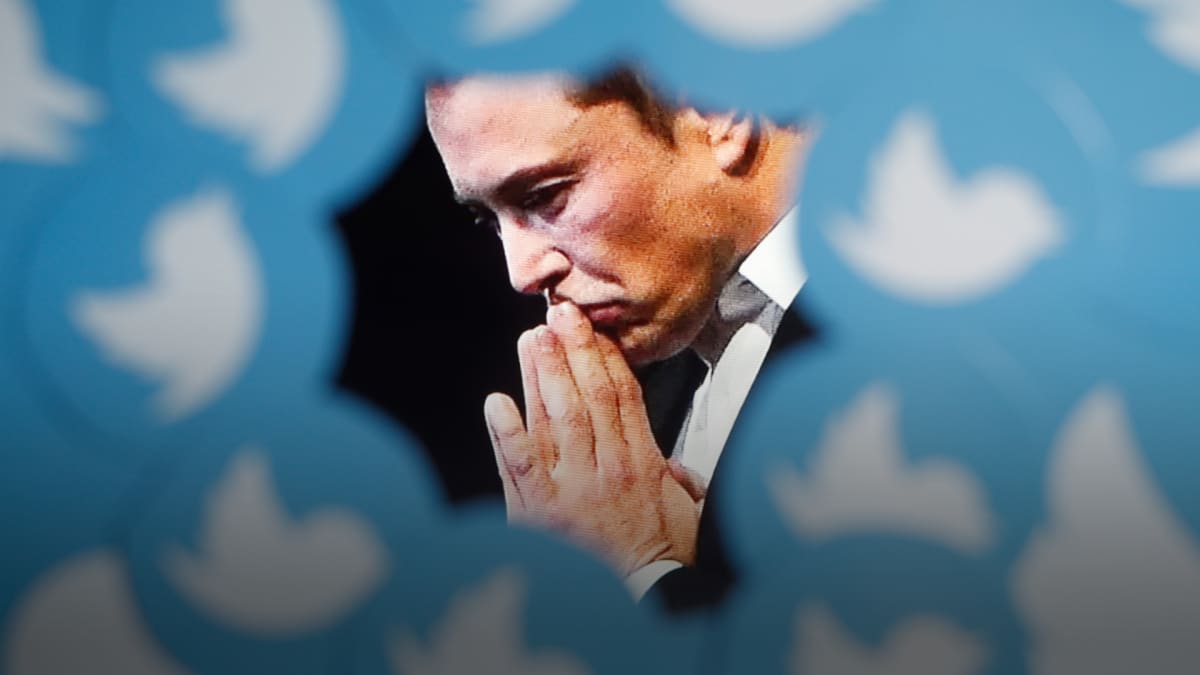
The acquisition of Twitter is slowly turning into a financial disaster for Elon Musk.
The second richest man in the world personally took over the microblogging website on Oct. 27, having paid $44 billion. About $33.5 billion of that $44 billion was in equity. Some major shareholders of Twitter 1.0 had helped the billionaire finance the acquisition by rolling their stakes into Twitter 2.0.
For example, the financial-services giant Fidelity held a stake equivalent to about $20 million in Twitter before Musk acquired the platform.
At the end of March, the billionaire acknowledged that Twitter's value had been more than halved. In effect, the tech mogul offered new equity grants to employees based on a $20 billion valuation.
Twitter Market Value Plunged to $14.41 Billion
But a month later, Fidelity assessed this valuation at much less. As of November Fidelity had marked down its stake to $8.6 million. As of Jan. 31, the stake was valued at $7.8 million.
And Fidelity has once again reduced the value of its stake in Twitter, now known as X Holdings in official documents. As of April 28, Fidelity Blue Chip Growth Fund's stake in Twitter 2.0 is valued at just $6.55 million, according to a new filing that you can read here.
Given this new Fidelity move, Musk's Twitter valuation is now just $14.41 billion. Basically, the firm lost $29.6 billion in market value in seven months.
Asked for comment, Twitter responded with a poop emoji. Musk has indicated that this emoji will be the automatic response to media inquiries.
The fall in market value reflects the major difficulties facing Twitter 2.0.
Some of these problems were created by the billionaire himself. Musk decided to make Twitter a center for conservatism. He removed all safeguards limiting the spread of misinformation, racism, antisemitism and hate speech.
This laissez-faire approach to content management has scared off many advertisers. Advertising revenue accounted for more than 91% of Twitter's revenue in the second quarter of 2022, the last period for which data are available.
Musk has taken the firm private, so he no longer has to publicly report Twitter's financial results.
The other decision Musk made was to drastically cut costs, which resulted in 5,200 employees departing in less than three months. Twitter employed 7,500 people when Musk arrived. He cut 50% of the jobs in one day last November.
A few days after these job cuts, the new owner of the social network asked the remaining employees to work long hours or leave.
"Going forward, to build a breakthrough Twitter 2.0 and succeed in an increasingly competitive world, we will need to be extremely hardcore. This will mean working long hours at high intensity. Only exceptional performance will constitute a passing grade," the billionaire wrote in an email sent to employees on Nov. 16.
Twitter Names a New CEO
"If you are sure that you want to be part of the new Twitter, please click yes on the link below," he continued. "Anyone who has not done so by 5pm ET tomorrow will receive three months of severance."
It is difficult to know what response the entrepreneur expected from this ultimatum. More than a thousand employees decided to leave, which caused chaos, forcing Musk to temporarily close Twitter offices, including the headquarters in San Francisco.
Musk tried to replace advertisers by revamping Twitter Blue, the platform's subscription service. He integrated the check mark that certified the identity of the authors behind the accounts and increased the price. Blue costs $7.99 per month for individuals and $1,000 per month for organizations.
The problem is that Blue did not provide the expected results. Subscriptions did not pick up.
Musk has more or less acknowledged this failure by hiring Linda Yaccarino to succeed him as CEO.
Yaccarino, who was chairman of global advertising and partnerships at NBCUniversal prior to joining Twitter, , in a few days will take the helm from the techno king, as he's known at Tesla (TSLA).
She faces the Herculean task of helping Twitter regain credibility with advertisers and restoring the lost trust and connection with them.
Action Alerts PLUS offers expert portfolio guidance to help you make informed investing decisions. Sign up now.







